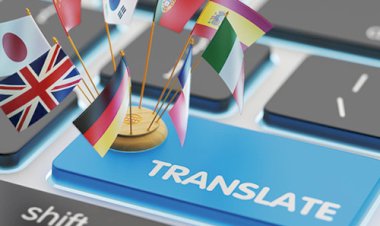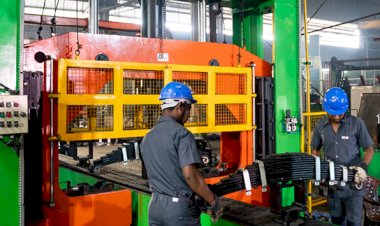Elevating Trust and Authenticity in Language Services
The demand for precise and trustworthy translations has never been stronger in the digital era, as information moves freely across borders and languages.

The demand for precise and trustworthy translations has never been stronger in the digital era, as information moves freely across borders and languages. The importance of translated material cannot be overstated as industries grow more worldwide. Enter block chain-verified translations, a game-changing technique that blends block chain technology's power with linguistic knowledge to verify the integrity and legitimacy of translated documents.
The Translation Services Trust Issue
 In a world where information may be readily manipulated or misrepresented, it is critical to ensure the authenticity and dependability of translated content. Legal, business, intellectual, and personal translations are frequently required by organizations, governments, and people. The problem is ensuring that these translations are accurate to the original purpose while preserving content security.
In a world where information may be readily manipulated or misrepresented, it is critical to ensure the authenticity and dependability of translated content. Legal, business, intellectual, and personal translations are frequently required by organizations, governments, and people. The problem is ensuring that these translations are accurate to the original purpose while preserving content security.
Block chain's Role in Translation
Block chain technology, which was originally developed to protect digital transactions, is now finding uses in a wide range of sectors. Block chain-verified translations from translation company birmingham are one such use. Because block chain is decentralized and irreversible, it provides a safe environment for storing and authenticating translated documents, making them tamper-proof and traceable.
How Blockchain-Verified Translations Work
1. Timestamping and Hashing: When a translation is finished, it is saved as a unique "hash" on the block chain. This hash is effectively the translated content's digital fingerprint. Furthermore, the timestamp specifies when the translation was finished, providing a reliable record of the document's existence at a certain point in time.
2. Immutable Records: Once a translation is saved on the block chain, it cannot be changed or erased without leaving a trace. This ensures the document's long-term integrity and prevents illegal changes.
3. Authentication: By comparing the stored hash with the original content, block chain-verified translations may be readily confirmed. This procedure confirms that the translation has not been modified since it was created.
Advantages of Block chain-Verified Translations
1. Increased Security: Traditional methods of document storage might be subject to hackers and manipulation. The cryptographic structure of block chain guarantees that translations stay secure and unaltered.
2. Assurance of validity: Block chain-verified translations provide unequivocal confirmation of validity. This is especially useful in legal and governmental circumstances where document integrity is critical.
3. Fewer arguments: With a certified and unalterable record of the translation's construction, arguments about translation correctness are reduced.
4. Global Accessibility: Block chain-verified translations may be accessible from anywhere in the world, removing the need for physical copies and speeding up cross-border transactions.
Applications Across Industries
1. Legal and Contracts: In legal procedures and international contracts where accuracy and authenticity are crucial, block chain-verified translations can be critical.
2. Academic Research: Verifiable translations of foreign-language texts can help scholars and researchers ensure the accuracy of citations and references.
3. Intellectual Property: Protecting intellectual property rights sometimes necessitates the translation of papers. Block chain assures that these translations are accurate representations of the original material.
The Future of Trustworthy Translations
Block chain-verified translations represent a significant advancement in assuring the dependability of translated material. This unique technique has the potential to become the gold standard for translations in an increasingly digital and linked world as technology advances. The language services sector is boosting the confidence and validity of translations to unprecedented heights by combining block chain principles with the accuracy of linguistic knowledge.





































